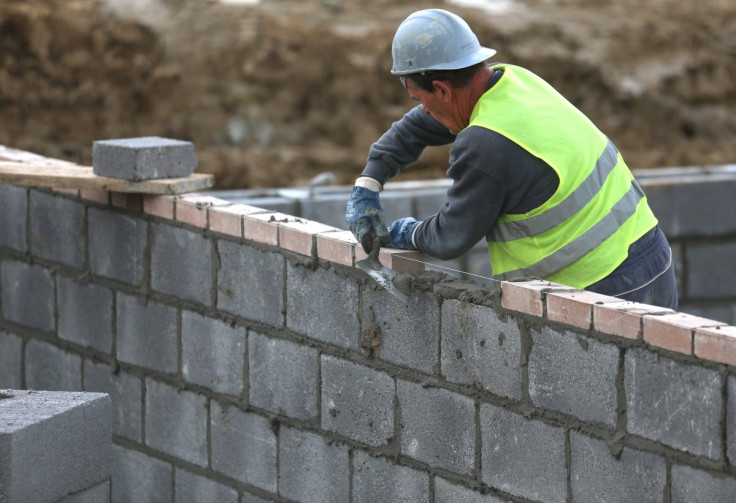UK housing crisis: Construction skills shortage will cause 'crippling delays and spiralling costs' for housebuilders

A skills shortage in the construction sector is driving up wages and holding back vital infrastructure work – including efforts to build more homes to end the country's housing crisis.
The Royal Institute of Chartered Surveyors (Rics) said construction wages rose by 6% in 2015, well ahead of the 2% UK average, because there are not enough workers. Bricklayers and quantity surveyors were hardest to find, said the Rics UK Construction Market Survey, in which 61% of construction firms reported a sharp rise in wage costs. Nearly two-thirds reported financial constraints. Net lending to construction firms dropped by £274m in the three months to November 2015.
A shortage of housing has driven up rents and house prices in recent years, particularly in London and the South East. Housebuilding is running at around half the level needed to meet demand, but housing starts fell in England. In the year to September 2015 there were 136,830 starts, down by 0.8% on the 12 months before, reported the Department for Communities and Local Government (DCLG).
"The construction skills crisis is slowing growth in a sector that is vital to UK plc," said Sally Speed, skills and talent director at Rics. "Unless government looks to address the problem urgently, some of its key housing and infrastructure programmes could soon face crippling delays and spiralling costs. To tackle the problem, government must deliver a new skills strategy that will enable industry, unions, and educators to work together and deliver real solutions.
Simon Rubinsohn, chief economist at Rics, said labour shortages were causing delays in the construction sector but he hoped the higher wages "will encourage skilled workers to return to the sector, as well as drawing school leavers and graduates towards construction industry careers."
The forthcoming EU referendum, expected by the end of 2017, threatens to worsen the skills shortage. If Britain votes to leave the EU, construction firms will face barriers to hiring migrant workers from Europe who are currently easy to employ because of the EU's free movement of labour. The Construction Industry Training Board forecasts that between 2015 and 2019 alone, construction will need 224,000 new workers. Data from the ONS and OECD suggests around 10% of the UK construction sector's workforce are foreign-born.
In a 2015 report, the Chartered Institute of Building (CIOB) said one of the solutions to the skills problem is a long-term programme of training young British people to work in the construction industry. But it also warned on the EU referendum that "a crude clamp on freedom of movement of labour would be to the detriment of the industry. As a volatile industry, construction benefits from the two-way migration with foreign workers finding jobs in the UK and UK workers finding jobs abroad."
The Local Government Association (LGA), which lobbies for local councils, found 475,647 homes that have unimplemented planning permission in 2015, up sharply from 381,390 in 2012-13 and 443,265 in 2013-14. "Skills is the greatest barrier to building, not planning," said Cllr Peter Box, LGA housing spokesman. "If we are to see the homes desperately needed across the country built and jobs and apprenticeships created, councils must be given a leading role to tackle our growing construction skills shortage, which the industry says is one of the greatest barriers to building."
© Copyright IBTimes 2025. All rights reserved.






















